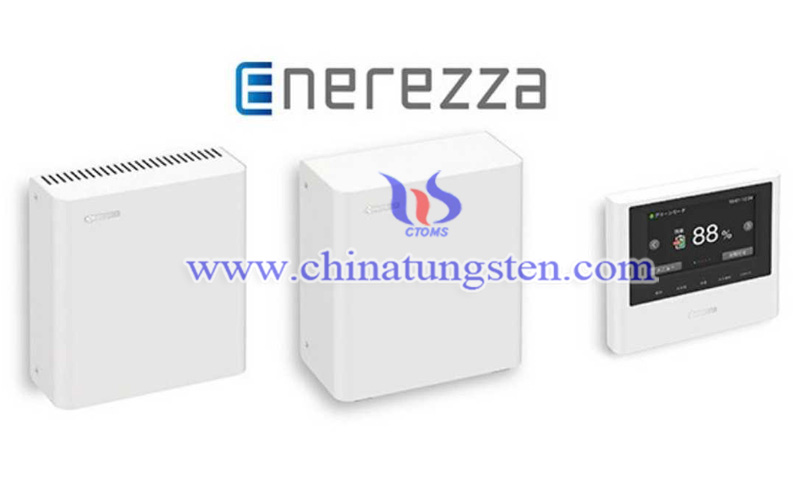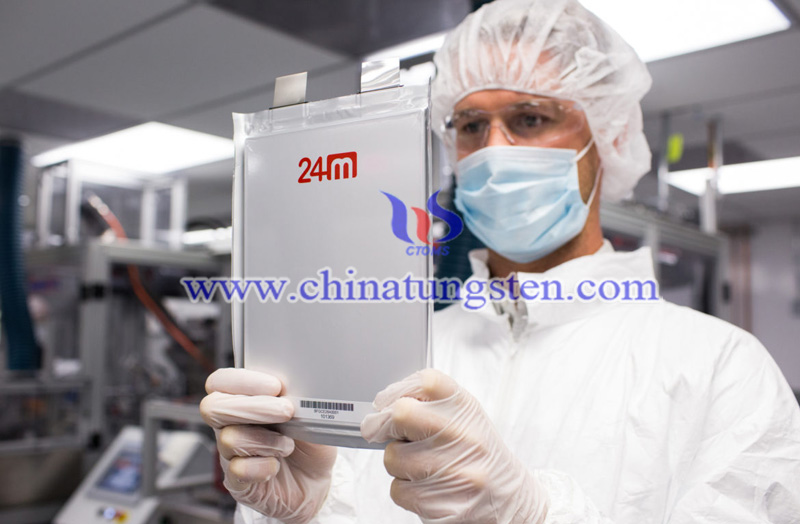First Semi-Solid Lithium-Ion Battery Will Be Introduced by Kyocera
- Details
- Category: Tungsten's News
- Published on Thursday, 09 January 2020 21:45
The world's first semi-solid lithium-ion battery architecture will be used in Japanese electronics company Kyocera's new launching Enerezza residential storage fleet, which can greatly improve the economics of the battery and accelerate the price revolution of battery energy storage. It will be the first company to bring this technology to market, according to foreign media reports.

Kyocera Corporation has announced that the latest residential energy storage equipment's battery is based on a semi-solid-state battery architecture, which will begin mass production this fall. The battery for energy storage products comes from the US start-up company 24M.
In June 2019, Kyocera Corporation piloted the battery manufacturing process together with 24M, which has championed a new approach to lithium-ion battery production developed by MIT researcher Yet-Ming Chiang. Chiang founded 24M in 2010 to bring the technology to market and last year the manufacturer began pilot runs to validate real-world efficiency. It is understood that 24M company owns a significant advantage in the list of structural materials, and the required up-front funds will be greatly reduced.
The energy storage product is available in 5 kWh, 10 kWh, and 15 kWh models. Kyocera claims that this new process can significantly reduce production costs. Material costs for semi-solid batteries are around 40% lower than for standard lithium-ion battery architecture and the manufacturing time is two-thirds shorter, because in semi-solid lithium-ion battery electrodes, the electrolyte is mixed with materials to form a clay-like slurry, eliminating the need for a binder. Inactive materials are removed as a result, along with costly processing steps such as drying, solvent recovery, calendaring and electrolyte filling.

The unique production process also makes it possible to produce electrodes four to five times thicker than industry standards, reducing the need for copper, aluminum, and separators, and reducing costs. Besides, the energy density of a semi-solid battery is several times that of its competitors.
Kyocera said that various advantages would add up to a capital requirement which is half that of conventional lithium-ion energy storage products. According to 24M, the energy density of the semi-solid lithium-ion battery architecture can reach 350 Wh / kg. To this point, whether the world's first residential energy storage battery to be put on the market could really be applied remains to be tested in practice.
- Tungsten Manufacturer & Supplier, Chinatungsten Online: www.chinatungsten.com
- Tungsten News & Prices of China Tungsten Industry Association: www.ctia.com.cn
- Molybdenum News & Price: news.molybdenum.com.cn
- Tel.: 86 592 5129696; Fax: 86 592 5129797; Email: sales@chinatungsten.com



 sales@chinatungsten.com
sales@chinatungsten.com